International
Carlos Correa, director of the Venezuelan NGO Espacio Público, has been released from prison
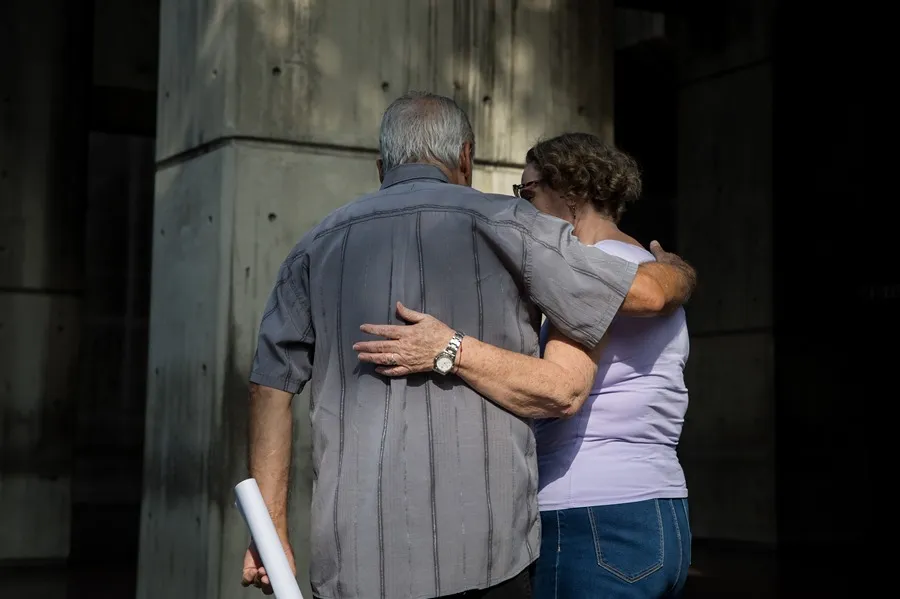
The director of the Venezuelan human rights NGO Espacio Público, Carlos Correa, who was arrested on January 7, was released early this Thursday, the organization reported in a message from X.
“We thank all the people, organizations, governments and groups who joined the voice for liberation,” says the message in which the NGO states that it continues with “the work for the defense of human dignity.”
The release, of which no more details are given, came hours after Mabel Calderín, wife of the director of Espacio Público, reported that they had learned that her husband was brought before a court with jurisdiction in terrorism, but not of what crimes he is accused.
“Today we were received by the national prosecutor 52 of economic crimes, Alirio Mendoza, who told us that the information he could offer was punctual and that he explained to us that Carlos was arrested on January 7, effectively, and was presented on January 9 with a public defender,” Calderín explained in a video published by Espacio Público in X.
He pointed out that, according to the prosecutor’s information, Correa was presented before a court with jurisdiction in terrorism but that, he added, could not explain “what were the charges that were charged against him.”
Calderín indicated that they went again to the headquarters of the Bolivarian Intelligence Service (Sebin), known as the Helicoide, where they denied that the activist was detained there.
The NGO Espacio Público reported last Tuesday the “disappearance” of Correa, the same day as the arrest of seven opposition politicians, including former presidential candidate Enrique Márquez, as well as the “kidnapping” of Rafael Tudares, son-in-law of opposition leader Edmundo González Urrutia, who described the event as such.
Various opposition parties, political and social activists, non-governmental organizations, universities and international organizations have spoken out in the last week in favor of Correa, whose career in defense of human rights is highlighted.
International
Rubio rules out 2028 presidential bid if Vance runs

U.S. Secretary of State Marco Rubio said he would not seek the presidency in 2028 if current Vice President JD Vancedecides to run as the Republican nominee to succeed President Donald Trump.
“If JD Vance runs for president, he will be our candidate, and I will be one of the first people to support him,” Rubio said in an interview with Vanity Fair, in which he appeared alongside other senior members of the presidential cabinet.
Rubio, 54, and Vance, 41, are widely viewed as two of the leading Republican figures who could headline the party’s ticket in the 2028 election. Under the U.S. Constitution, Trump is barred from seeking another term after completing two presidential mandates.
In a lighthearted moment during the interview, Vance jokingly offered photographers $1,000 if they managed to make him look better than Rubio in the photos. Both leaders have received public backing from Trump, who last October floated the idea of a joint ticket featuring Rubio and Vance, without clarifying who would lead it.
“I think that if they ever teamed up, they would be unstoppable. I don’t think anyone would run against us,” Trump said at the time.
White House Chief of Staff Susie Wiles, who also took part in the interview, confirmed that Trump does not intend to violate the 22nd Amendment, which prohibits a third presidential term, though she acknowledged that the president is “having fun” with speculation about a possible return to office.
Rubio, the son of Cuban immigrants, served as a Republican senator from 2010 to 2025. He sought the party’s presidential nomination in 2016 but was defeated by Trump after a bruising primary contest. His name was floated as a potential vice presidential pick in 2024, but Vance ultimately secured the spot. After taking office, Trump appointed Rubio as secretary of state, making him the first Latino to hold the position.
International
Authorities search for armed and dangerous suspect in fatal Brown University attack
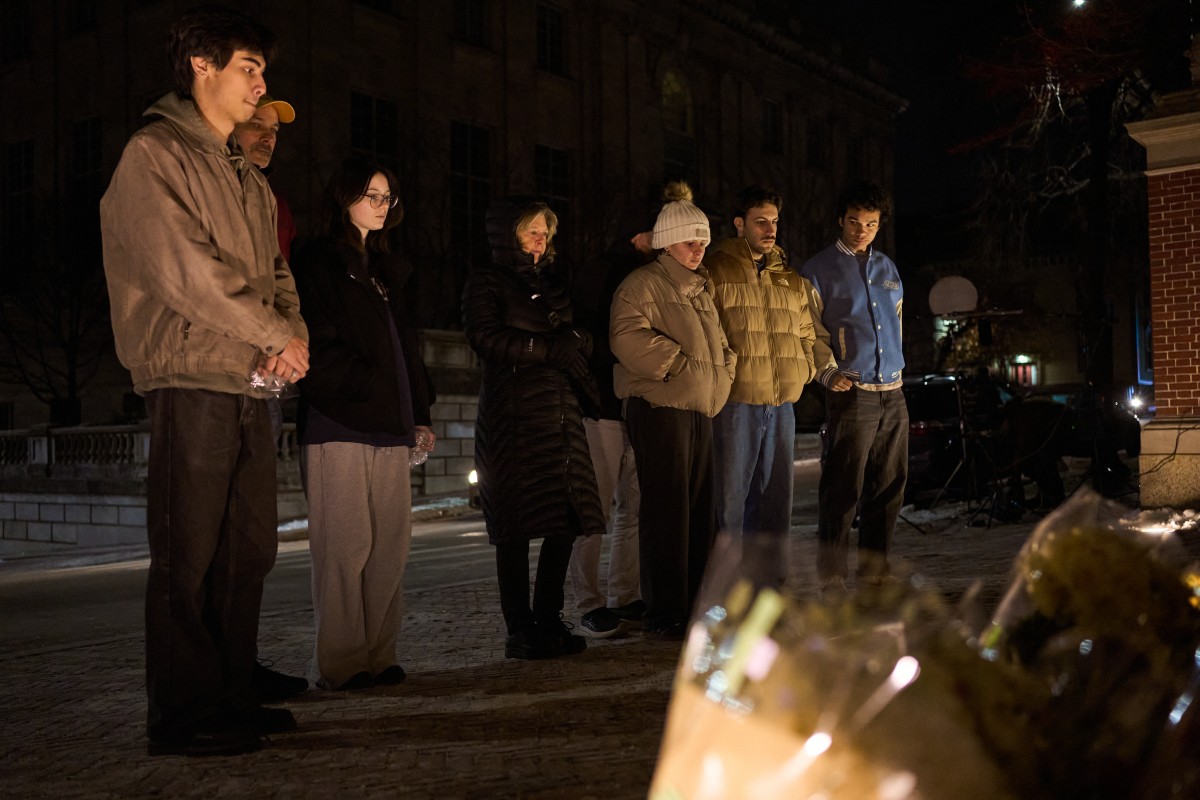
According to the statement, investigators are “seeking the public’s help to identify and speak with an individual” who was seen “near” the suspect at the time of the attack.
The Providence Police Department in Rhode Island released three photos of the person of interest, whose face has been blurred. In the images, the individual is wearing navy blue clothing, what appears to be a green hood, and carrying a light-colored backpack.
Earlier, authorities had released several photos and videos of a suspect described as “approximately 5 feet 8 inches tall, with a stocky build,” dressed in dark clothing, with their face covered by a surgical mask and wearing a beanie. The suspect’s identity remains unknown.
Authorities are offering a $50,000 reward for any information leading to the identification, arrest, and conviction of the person responsible for the killings, who is considered armed and dangerous.
The gunman opened fire on Saturday at Brown University’s engineering and physics building, where exams were being held, killing students Ella Cook and Mukhammad Aziz Umurzokov. The names of the nine people injured have not been released.
International
Police investigate deaths of Rob Reiner and wife as apparent homicide

The Los Angeles Police Department (LAPD) is investigating the deaths of Hollywood actor and filmmaker Rob Reinerand his wife as an “apparent homicide,” amid a wave of tributes to the director of classics such as When Harry Met Sally.
According to U.S. media reports on Sunday, Rob Reiner and Michele Singer Reiner were found dead at their Los Angeles mansion with what appeared to be stab wounds.
Several political figures shared messages of condolence following the reported deaths of the director of A Few Good Menand his wife.
While the LAPD did not officially confirm the identities of the victims, it stated that homicide detectives were dispatched to the Reiner residence.
“At this time, no additional details are available and the investigation into an apparent homicide is ongoing,” the Los Angeles Police Department said in a statement posted on social media.
LAPD Deputy Chief Alan Hamilton told reporters that no arrests have been made and that no individuals are currently being questioned as suspects.
“I’m not going to confirm whether anyone is being questioned at this moment or not. We are going to try to speak with as many family members as we can,” Hamilton said.
CNN reported that a family spokesperson confirmed the deaths of Reiner and his wife.
California Governor Gavin Newsom, former U.S. President Barack Obama, and former Vice President Kamala Harrisissued statements expressing their condolences.
-

 Central America3 days ago
Central America3 days agoPanama seizes over three tons of drugs hidden in Caribbean port container
-

 International2 days ago
International2 days agoPolice investigate deaths of Rob Reiner and wife as apparent homicide
-

 International4 days ago
International4 days agoSeveral people shot in attack on Brown University campus
-

 Central America2 days ago
Central America2 days agoOAS urges swift recount in Honduras as election results remain uncertain
-

 Central America1 day ago
Central America1 day agoBukele says AI partnership with xAI will transform public education in El Salvador
-
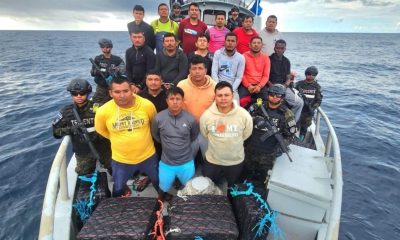
 Central America1 day ago
Central America1 day agoEl Salvador ranks among top countries in the Americas in fight against organized crime
-

 International4 days ago
International4 days agoU.S. and Mexico Reach Deal to Address Water Deficit Under 1944 Treaty
-

 International6 hours ago
International6 hours agoRubio rules out 2028 presidential bid if Vance runs
-
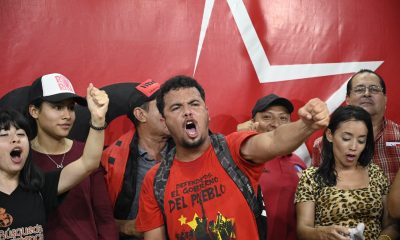
 Central America6 hours ago
Central America6 hours agoArrests and clashes in Tegucigalpa as vote count continues after Honduras election
-
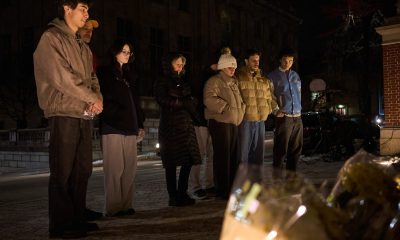
 International6 hours ago
International6 hours agoAuthorities search for armed and dangerous suspect in fatal Brown University attack


























